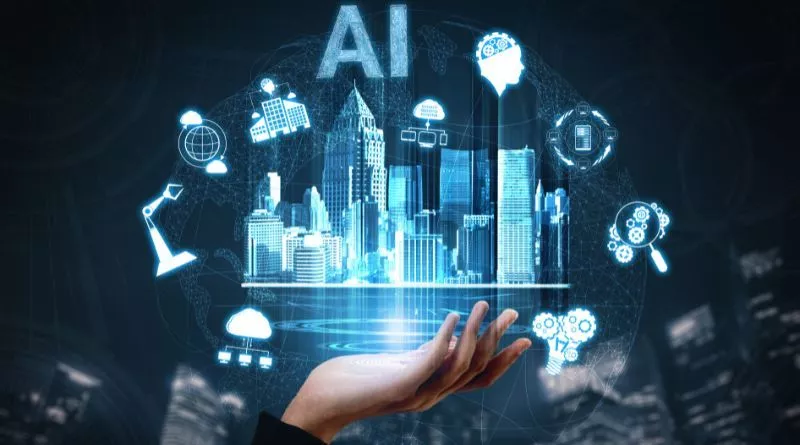Can artificial intelligence (AI) do everything?
Every technology, of course, has its limits. Still, as long as people all over the world keep working from home, the risk of cyberattacks is at an all-time high.
Cybercriminals are always looking for ways to make money, and they are a danger to all kinds of businesses and the customers who use them. Even though it may be hard to predict these things, more businesses are turning to AI technology to improve their cybersecurity.
How could AI come to the rescue? Read on to find out!
Cybersecurity and Artificial Intelligence
The digital age has given us access to a wide range of opportunities, but it has also exposed us to a number of hazards, including those that could compromise our personal data. There has never been a time when cybersecurity was more necessary than today. The capacity of cybercriminals to contact their targets anywhere in the world at any time has led to an increase in identity theft, financial loss, and data breaches during the past ten years.
As a result, artificial intelligence (AI) tools and machine learning approaches are being created and supported to play a vital role in the battle against cybercrime.
Businesses are paying attention. Businesses are beginning to make significant investments in creating AI systems that examine big data sets containing harmful code, malware code, and abnormalities to assist cybersecurity teams in identifying potential threats.
How AI can help stop hackers
AI is becoming more and more important in cybersecurity as it is combined with machine learning. ZDNet says that new security tools are using big data from millions of cyber incidents to find threats like phishing schemes and new versions of malware.
Unfortunately, some cybercriminals are one step ahead of these efforts to find them. They change their malware code so that security software doesn’t recognize it as bad. Malware comes in many different forms, and it’s hard to find them all. Luckily, AI and ML can help. ML is great for anti-malware security solutions because it can use information about any type of malware that has already been found.
So, when a new type of malware comes out, the system can compare it to the database, look at the code, and stop the attack. This method works even when malicious code is hidden in a lot of code that is harmless or doesn’t do anything.
Also Read: The Impact of Artificial Intelligence on Society and the Future of Intelligence
Uses of AI to Information Security
AI isn’t really just a buzzword. Enterprise describes how it is used to enhance cybersecurity in the following ways:
1. Protection and Authentication of Passwords
Occasionally, passwords are the only thing protecting our accounts from fraudsters. Innovations such as biometric authentication are a step in the right direction, but they are not particularly handy and can still be compromised. Nowadays, AI is being used to improve the accuracy of biometric authentication (body measurements and calculations related to human features).
Face ID is an Apple iPhone X feature that utilizes artificial intelligence. Using infrared sensors and neural engines, this technology creates comprehensive facial models by identifying significant patterns and correlations. The AI software architecture can also function in varying lighting conditions and recognize the user regardless of changes such as a new hairdo, facial hair growth, or wearing a hat.
2. Control of Spyware Detection and Prevention
One in every 99 emails is a phishing assault, making phishing one of the most popular cyber-attack techniques. AI and ML can detect and track more than 10,000 active phishing sources and respond and fix the situation far faster than a human could. Moreover, AI and ML can comprehend all forms of phishing efforts, regardless of their geographical origins, hence making the technology even more vital to modern cybersecurity postures.
3. Application
Many security postures are reactive as opposed to proactive. Technologies based on AI and ML that proactively look for potential vulnerabilities in an organization’s information systems fall under the latter category. They can accomplish this by analyzing many parameters, including hacker-created patterns, to identify when and how a threat can reach vulnerable targets.
4. Network Protection
The development of security policies and the determination of an organization’s network topology are two essential aspects of network security. Historically, these processes have been quite time-consuming, but AI is speeding them up. This is accomplished by observing and understanding network traffic patterns and recommending security regulations. Now, security employees can concentrate on other technical AI development and improvement fields.
Difficulties Overcome by AI-Based Cybersecurity Technologies
When it comes to the use of AI in cybersecurity, numerous tools are being developed by cybersecurity organizations. AI tools can use AI and ML to the processes, expertise, and capabilities of security experts and researchers in order to uncover hidden and targeted threats. In addition, these technologies can compare incidents in the network to occurrences in the threat data lake of an organization, showing suspicious activities at each endpoint.
Deep learning neural networks can be used to develop algorithms that target the “Genome” of malware and other cyber threats. Active self-defense products are able to detect and replicate digital antibody functions that identify and neutralize developing threats and infections.
Last but not least, AI can be used to automatically evaluate indicators of all compromises or exploits, thereby alerting security experts to instances requiring assessment. Cognitive reasoning can establish linkages between threat entities linked with true situations, such as malicious files, suspicious IP addresses, and hostile entities.
How is Artificial Intelligence Connected with Cybersecurity?
Owing to AI’s adaptability, it is well-suited to address the ever-changing security concerns of the world. With artificial intelligence, firms that store sensitive data can deploy automatic threat detection that can stay up with cybercriminals. AI’s function in cyber security is to protect firm assets and user data.
AI is useful for integration with cybersecurity systems for a number of reasons:
Continuous Learning – Artificial intelligence employs machine and deep learning to comprehend network behavior and cluster recognizable patterns.
Data Management – Every day, significant volumes of data are transported and stored, particularly in the case of larger enterprises. Evaluating and safeguarding this information manually is time-consuming and challenging, but AI can automatically scan big data collections for potential dangers.
Reducing Time-Consuming Tasks — Although cybercriminals alter their methods, many of their attacks stay constant. AI can effortlessly maintain ongoing security procedures, allowing qualified cybersecurity workers to concentrate on delivering new solutions to the organization’s most critical problems.
When AI is added to cybersecurity systems, a number of things get better, such as:
IT Asset Inventory – AI gives organizations information that is always up to date about how hardware and software is used, how it is used, and how well it works. This monitoring can help organizations improve their security practices and find holes in their defenses.
Effectiveness Control – This technology can automatically check how secure company networks are and look for ways to make them better.
AI can be programmed not only to evaluate systems and make them more efficient, but also to explain things to key people in a company. This is a key part of getting both organizational leaders and end users on board.
Which Companies Use AI for Cybersecurity?
Numerous trustworthy firms have already included AI into their cybersecurity due to the technology’s great potential to make business systems more secure:
Google’s Gmail was a pioneer in the field of AI cybersecurity. Google uses deep learning to enhance security and change with the times.
Watson, a much-lauded product from IBM, is particularly good at gathering information and spotting security problems.
Juniper Networks: This company focuses on developing autonomous AI to create networks that are safer and easier to use.
How AI will affect cybersecurity in the future
As companies have grown, they have paid more attention to how reliable their networks are. This means that they now know about all cyberattacks. Organizations use more than one line of defense to keep this structure safe. Most of the time, this type of protection starts with the best firewall that can watch network traffic.
Specialists want to improve their ability to find and stop advanced cyberattacks with as little human help as possible. As cybersecurity uses more AI, AI networks and machine learning have made it possible for security experts to learn about new ways to attack.

